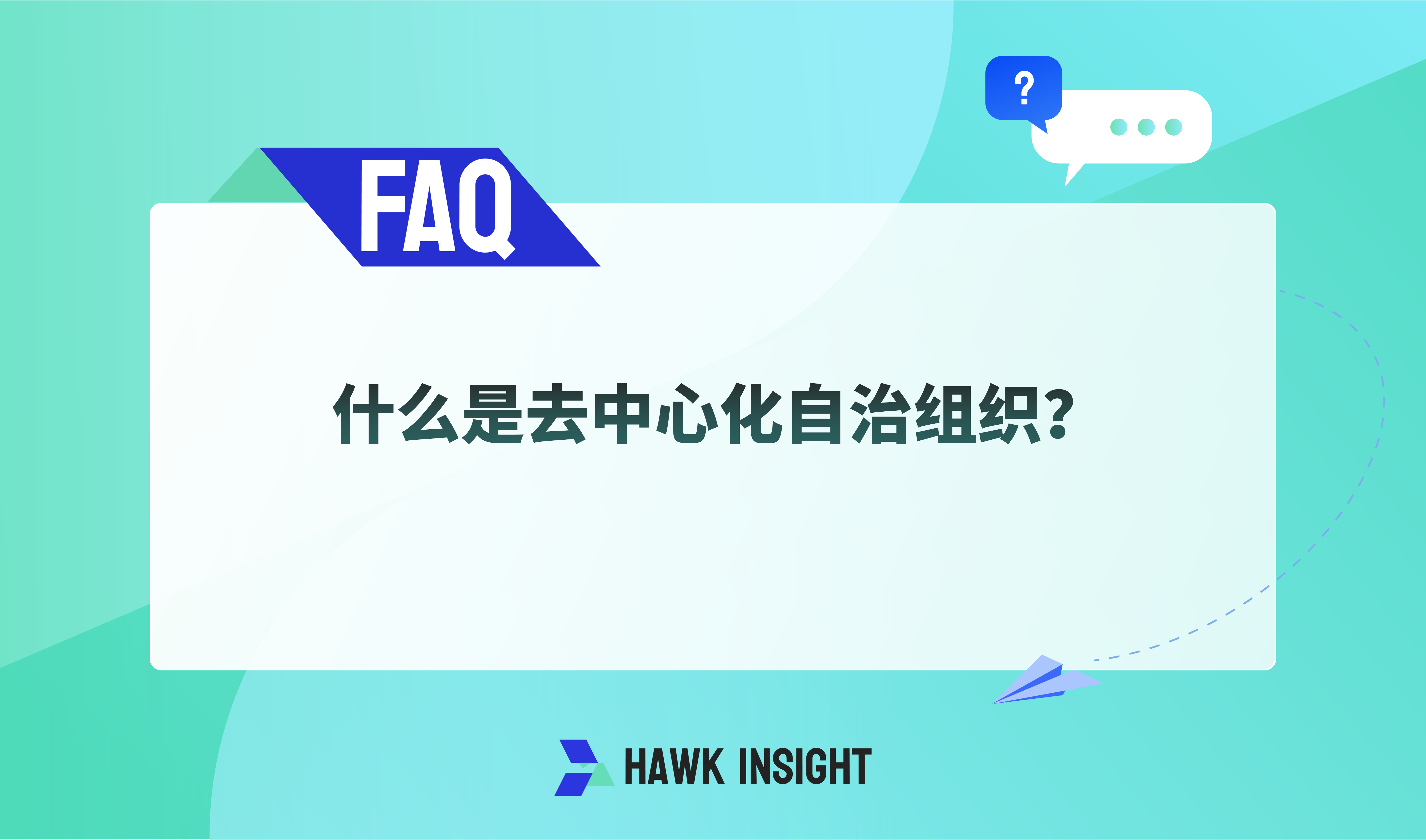What is a decentralized autonomous organization??
In the changing world of blockchain technology, decentralized autonomous organizations (DAOs) have become a game-changing concept.。
In the changing world of blockchain technology, decentralized autonomous organizations (DAOs) have become a game-changing concept.。

What is DAO?
A DAO (Decentralized Autonomous Organization) is a digital entity that works autonomously through code, allowing its members to collaborate to rule and make decisions.。It runs on the blockchain, which is a distributed ledger system that follows predetermined rules without centralized control.。
What is Blockchain Governance?
The goal behind the DAO is to eliminate the need for traditional intermediaries and central institutions。To facilitate decision-making and asset management, they use smart contracts, which are self-executing code on the blockchain, with the ultimate goal of building a trusted, transparent and community-driven organization.。
- Transparency: Because the DAO runs on a public blockchain, its decisions and transactions are completely transparent。
- Autonomous governance: Once established, DAOs do not require human interaction to execute decisions, eliminating the possibility of corruption or manipulation。
- Global accessibility: Anyone with an internet connection can use a DAO to promote inclusive and cross-border collaboration。
- Efficient decision-making: DAO automates voting and decision processes using smart contracts for more efficient governance。
- Immutable rules: DAO rules and protocols are encoded in smart contracts to make them tamper-proof and robust。
How Blockchain Governance Works?
DAO relies on blockchain technology to provide infrastructure for its operations。
Overview of Blockchain Technology
Blockchain is a distributed ledger technology that ensures security, transparency and immutability by recording transactions on multiple computers。Each block contains a list of transactions that cannot be changed once added to the chain。
The Role of Blockchain in DAO
Blockchain technology is essential to facilitate the main operations of DAOs, and it lays the foundation for decentralized consensus, ensuring that transactions and decisions are verified by a network of nodes rather than a centralized institution.。This decentralized ledger ensures the integrity of the organization's activities and the credibility of its data。
Decentralization in the DAO
Decentralization is a key component of DAO, and it brings many benefits but also obstacles。
Blockchain technology achieves decentralization by decentralizing decision-making power and data across a network of nodes。On the blockchain, smart contracts automate operations, ensuring fairness and transparency without the use of intermediaries。
Smart Contracts and DAOs
Although decentralization has many advantages, it also has disadvantages, such as scalability issues, potential security vulnerabilities, and difficulty in resolving conflicts without centralized power。
DAOs rely heavily on smart contracts, which are self-executing programming for self-executing contracts.。
What is a smart contract??
Smart contracts are digital protocols that automatically perform actions when predefined situations are met. They eliminate the need for middlemen and ensure transparent, untrusted relationships.。
The Role of Smart Contracts in DAO
Rules, protocols, and decision processes in the DAO are specified through smart contracts that allow members to automatically vote, distribute prizes, and manage assets。
Smart contracts inBenefits in DAO
Trust-independent execution: Because the code is immutable and transparent, smart contracts can perform operations without relying on trust。
Efficiency: Automation reduces management costs by simplifying decision-making and asset management。
Regulatory issues
Regulators are still debating how to classify and regulate DAOs, which creates uncertainty and challenges in the face of laws and regulations.。
It is worth noting that the regulatory environment for cryptocurrencies, blockchain technology, and related entities, including DAOs, may change rapidly.。Therefore, please review the latest Securities and Exchange Commission (SEC) statement, press release, or official publication for any updates on the position of the DAO from the regulatory authorities in your jurisdiction。
In addition, a legal expert with expertise in cryptocurrency and blockchain regulations can be consulted to further understand the current regulatory environment of the DAO。
Potential safety hazard
As the DAO grows in complexity and value, it attracts more and more attention from hackers, so strong security measures are essential。
potential growth
The potential applications of DAOs go beyond finance to include governance, supply chain and other areas where addressing barriers and regulatory frameworks is critical to their development.。
Conclusion
Decentralized autonomous organizations are a paradigm shift in how organizations operate without traditional hierarchies, using blockchain technology and smart contracts to promote de-trust, transparent and efficient governance.。While they have many advantages, they also have certain shortcomings and uncertainties that make them a promising frontier in the field of decentralized finance.。
FAQs
Can anyone participate in the DAO??
Yes, anyone with an internet connection can generally participate in a DAO as long as they have the necessary DAO tokens or assets。Token holder participation typically requires a vote on a proposal, contributing to the group's goals, and possibly receiving a reward.。
Is a DAO a legally recognized entity??
Legal recognition of DAOs varies by jurisdiction。They may not have a clear legal status in some countries and may be considered an organization in others。It is essential to seek the advice of a legal expert who is familiar with the rules of blockchain and cryptocurrency in your country。
How the DAO works at the top?
DAO uses blockchain-based technology to form a decentralized, autonomous organization regulated by smart contracts。DAO members hold governance tokens that represent their voting rights and ownership shares, and they can make choices and vote, such as how to allocate funds and take action.。Smart contracts then automate these decisions based on established rules stored in the contract, eliminating the need for traditional intermediaries and central authorities, resulting in a trustless and transparent organization。
·Original
Disclaimer: The views in this article are from the original Creator and do not represent the views or position of Hawk Insight. The content of the article is for reference, communication and learning only, and does not constitute investment advice. If it involves copyright issues, please contact us for deletion.